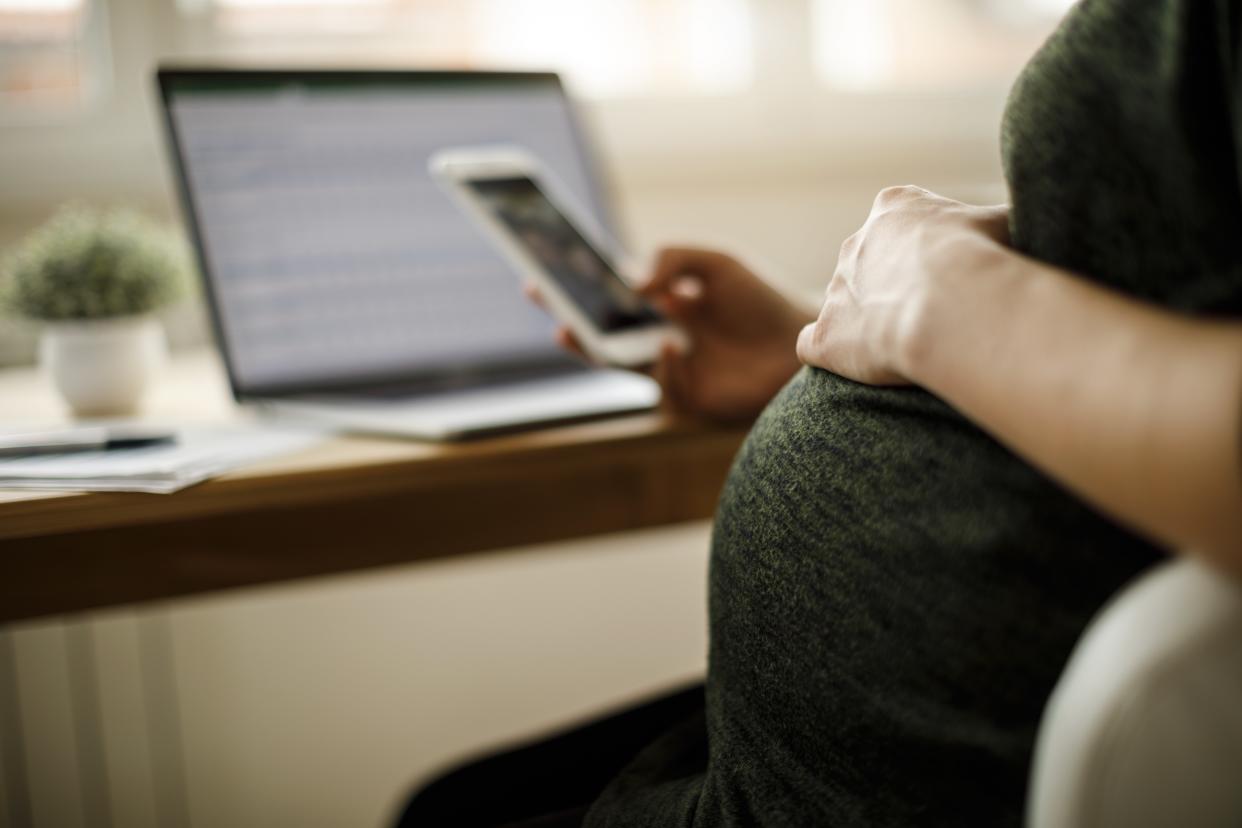Your Pregnancy App May Be Selling Your Data—to Your Boss

Tracking health data has gotten intimate. Thanks to the booming femtech industry, there are now dozens of fertility and pregnancy apps like Ovia, which give moms-to-be an easy way to input daily health updates during their pregnancy journeys. The apps, featuring colors like purple and blue, create a fun and welcoming environment to track women’s most personal data—sexual activity, menstrual cycles, fertility, pregnancy symptoms, dates for delivery, and even pregnancy loss—in a free, user-friendly mobile app. The idea that these apps might be selling your data isn’t new. But what if your data wasn’t going to some third-party advertiser but rather someone much closer to you—like your boss?
Earlier this week The Washington Post reported that Ovia Health, the parent company behind apps for fertility, pregnancy, and parenting, is selling users’ data to their employers. The Post spoke with Diana Diller, a 39-year-old event planner in Los Angeles who was using Ovia during her pregnancy to log daily activity such as bodily functions and sex drive. Her employer, Activision Blizzard, a video game company, was following along.
Activation Blizzard is part of a program offered by Ovia Health where employers can pay to offer employees a special version of the app as an employee benefit. The catch? The company gains access to the aggregated, anonymized data shared by its employees. Milt Ezzard, vice president of global benefits for Activision Blizzard, told the Post that offering “pregnancy programs such as Ovia help the company keep skilled women.” But experts worry employers could use the information to increase or decrease health coverage depending on what they see in the data. There's also the fear that companies could use incredibly intimate details like whether or not a woman was having premature birth or suffering a miscarriage in order to make business decisions. “The health information is sensitive but could also play a critical role in boosting women’s well-being and companies’ bottom lines,” Paris Wallace, chief executive of Ovia Health told the Post, pointing to rising rates of premature birth and maternal death as the reasons they want to sell this information to employers.
“It feels like a very big breach of privacy," says Brianna Bell, 29, a writer based in Guelph, Ontario. "It makes me feel uncomfortable, and it feels like this company has preyed on women who are in the most exciting and vulnerable time of their life.” Bell used Ovia’s pregnancy and parenting apps for 18 months without knowing the company could sell her information. (Ovia’s consumer apps—the free-to-download Ovia Fertility, Ovia Pregnancy, and Ovia Parenting—“do not share any data with employers,” a representative of the company said in a statement provided to Glamour. But the apps’ terms of service do state that by agreeing to use the product, users grant Ovia the right to “utilize and exploit” their anonymous personal data for research, marketing purposes, or sale to third parties.)
The idea of your data—even if it has been stripped of your name—floating around out there for use is unsettling. But is there really anything to worry about? Users need to opt in to Ovia's employer programs like the one offered by Activation Blizzard, according to the company, and of course, you can always choose not to input certain data. “An employer then only receives population-level data once a certain threshold of users has been reached,” Ovia told Glamour, adding that the app's makers work only with large companies to reduce the risk of a specific pregnant woman being identified in the office. “We are not reporting personal, intimate information like cycle data or pregnancy symptoms to employers,” the company says.
But that’s not much of a comfort to many women. “It seems as though nowadays anyone can find any information they want on someone even if we think we're in control of our data,” says Raz Pele, 30, who used Ovia’s fertility app for two years and the pregnancy app for six months, tracking information like her ovulation cycle and the dates of her period. Even with the limited information she put into the app, she isn’t comfortable with the idea of her employer, a large commercial real estate advisory firm, viewing it.
The controversy cuts right to the heart of questions around data privacy. For many, it's not so much that anonymous data sets are being shared, but that there's still a lack of transparency around how and why that happens. Wordy terms of service agreements packed with legalese that, let's be honest, most of us don't read don't help. None of the women Glamour spoke to was aware Ovia Health could sell sensitive data to employers. To play a “critical role in boosting women’s well-being,” women should be more involved in how their data is being used.
Bell no longer uses either Ovia app, but if she had realized how her data was potentially being used, she would have quit using them right away. “It’s a wake-up call," she says. "If an app is free and seems too good to be true, maybe it is.”
Rachel Wells is a writer in Nashville covering women’s rights, health and wellness, and arts and culture. Follow her on Twitter @rachelwells and on Instagram @rachelwells1.

